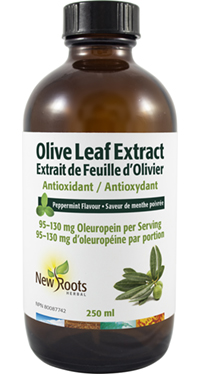-
Products
CategoryGender / Life StageHealth BenefitsRecommendedNew Products Amino Acids / Proteins Antioxidants Enzymes Essential Fatty Acids Exotic Skin Oils Functional Foods Glandular Extracts Herbs and Herbal Extracts Keto Diet Medicinal Mushrooms Probiotics Vitamins / Minerals50+ Health Children’s Health Gastrointestinal Conditions Maternity Men’s Health Women’s Fertility Women’s HealthBlood Glucose Management Cardiovascular Health Cholesterol Management Detoxification Digestive Health Energy Eye Health Hair / Skin / Nails Headache / Migraine Heart Function Immune Health Memory Help Metabolic Detoxification Mood Enhancement Muscle / Bone / Joint Health Neurological / Memory Health Neurological Health Oncology Adjuvant Therapy Pain and Inflammation Parasitic and Fungal Management Sleep Aid Sport Nutrition Stress / Mood / Sleep Stress Management Weight ManagementChoosing Your Probiotics Boost Your Immunity Vitamin D Studies How Healthy is Your Prostate? How Is Stress Affecting You? Magnesium—A National Deficiency Choose to Care - Vitamin D to Ukraine Exotic Oils for Exquisite Skin Medicinal Mushrooms Don’t Let Pain Stop You! Let us solve the O‑MEGA problem! Essential Oils Cardiac Health
- About Us
- Flourish
-
Stores
Olive Leaf Extract (Liquid)
Code 2294
UPC: 6-28747-22294-5
NPN: 80087742
Format: Liquid
Peppermint Flavour · 95–130 mg Oleuropein per Serving
Description
- Excellent source of antioxidants for the maintenance of good health
- Infused with peppermint essential oil
Obtained from the leaves of the olive tree (Olea europaea); these contain oleuropein, which is the main active principle of the olive tree. The use of this traditional herb dates to the early 1800s, when it was used as a remedy for various ailments. This compound has been recognized for several health-boosting benefits throughout the years. In the early 1900s, oleuropein was determined to be part of the olive tree’s powerful disease-resistant structure. Other European research determined this compound to have strong antioxidant capabilities as well. Biochemists have determined that the extract has multiple natural iridoids, flavonoids, and esters; and that the synergy of these working together is the reason for the wide-spectrum effect.
Olive leaf extract has been used clinically in its present form for years. Living up to its promising background, it has demonstrated considerable therapeutic action against free radicals.
Directions of Use
Adults: Take 16 ml (approx. 1 tbsp.) once daily with food or as directed by your health-care practitioner.
Ingredients
| Nutrition Facts | ||||
|---|---|---|---|---|
| Serving size: approx. 1 Tbsp. (16 ml) Servings per container: 16 | ||||
| Calories 48 | % Daily Value* | |||
| Fat 0 g | 0 % | |||
| Carbohydrate 10 g | 4 % | |||
| Sugars 0 g | 0 % | |||
| Protein 0 g | ||||
| Sodium 0 mg | 0 % | |||
| Olive (Olea europaea) leaf extract (Equivalent to 12.8 g of fresh leaves) | † | |||
| Standardized to Oleuropein 95–130 mg | † | |||
| * Percent Daily Values are based on a 2000 calorie diet. † Daily Value not established. | ||||
Warnings
Contains no: Gluten, soy, wheat, corn, eggs, dairy, yeast, citrus, preservatives, artificial flavour or colour, starch, or sugar.
Cautions and warnings: Consult a health-care practitioner prior to use if you are pregnant or breast-feeding, if you are taking other diuretics, or if you have a kidney disorder.
Known adverse reactions: Allergic reactions can occur in people allergic to plants of the Oleaceae family.

